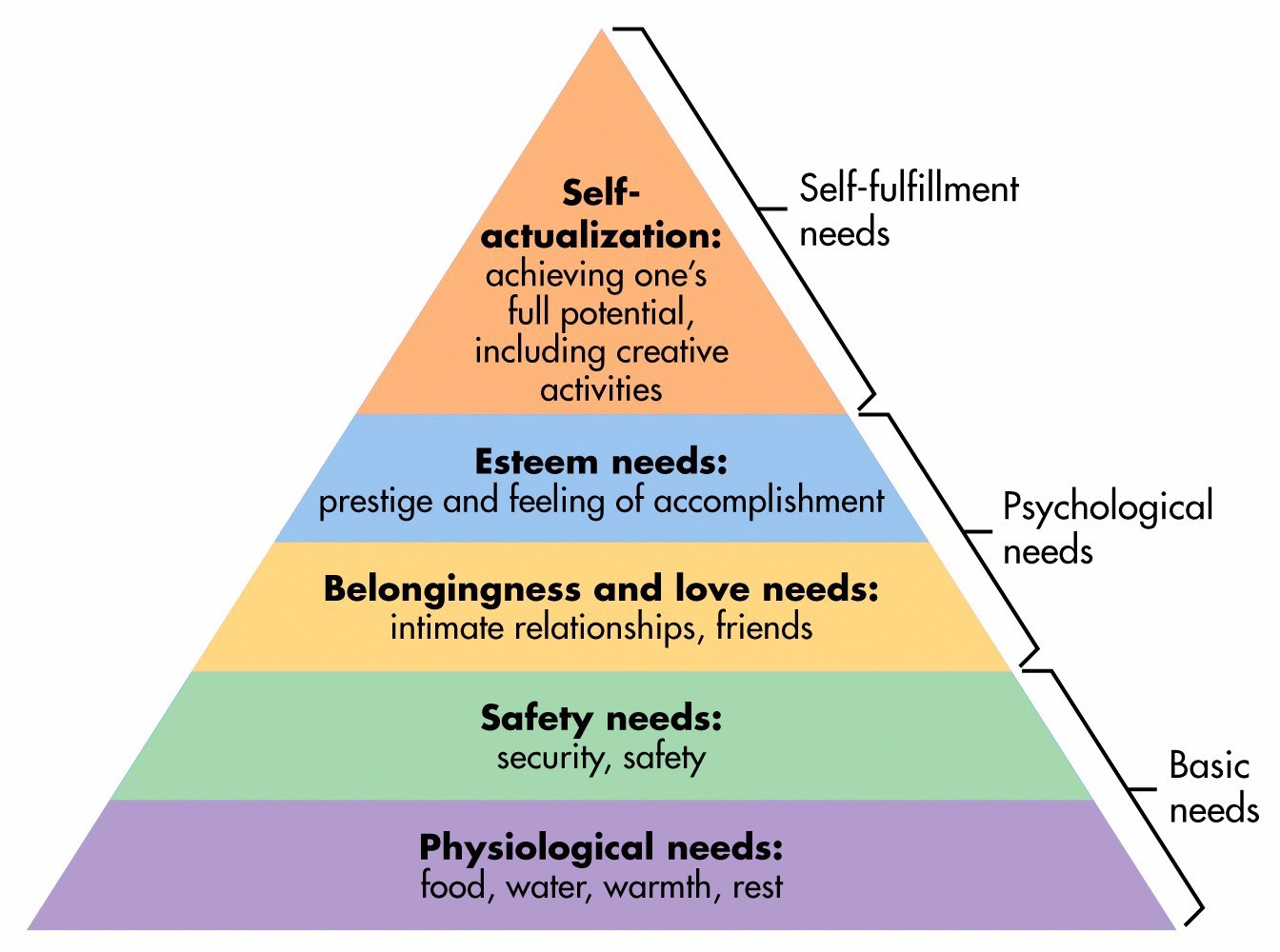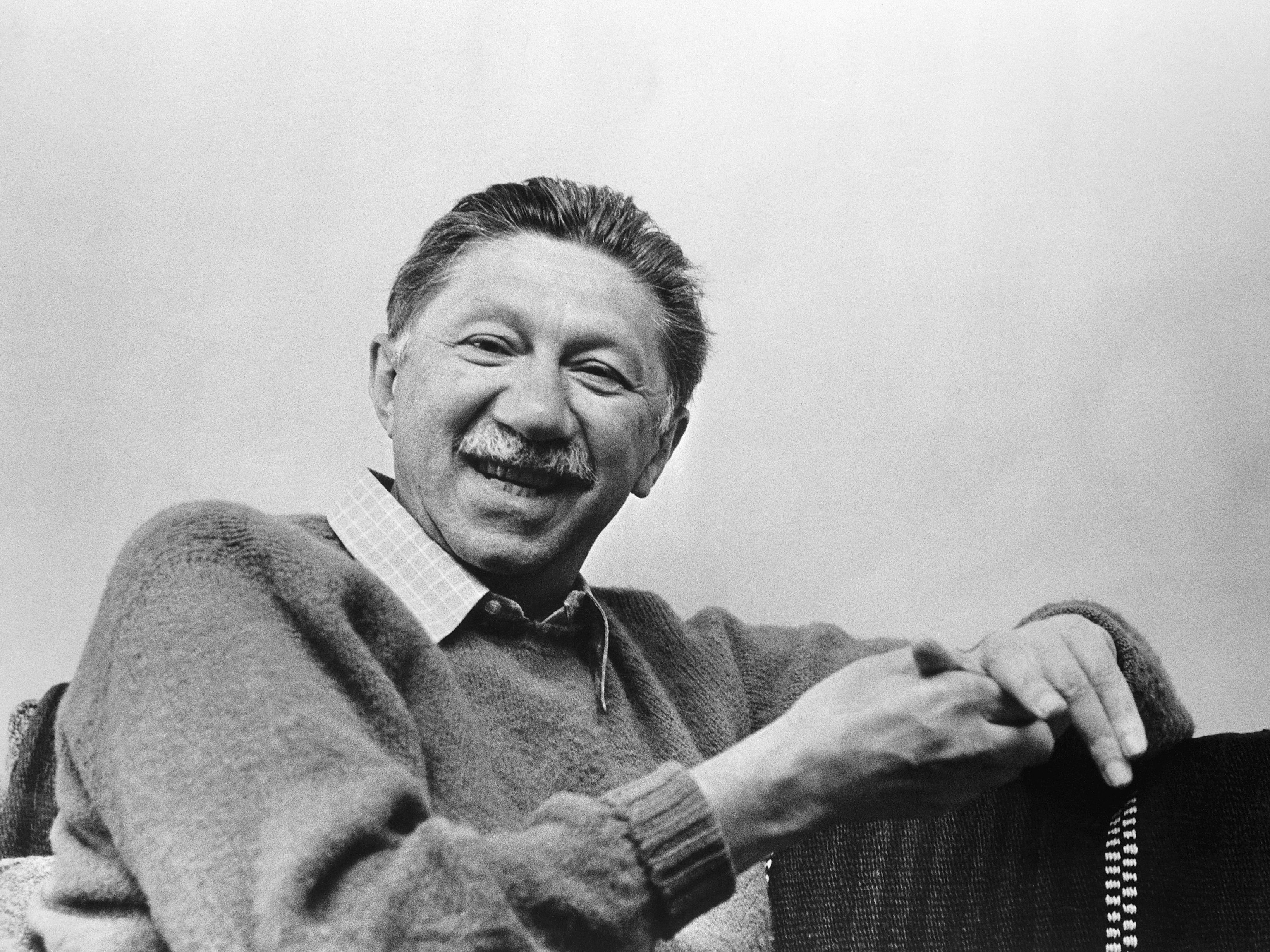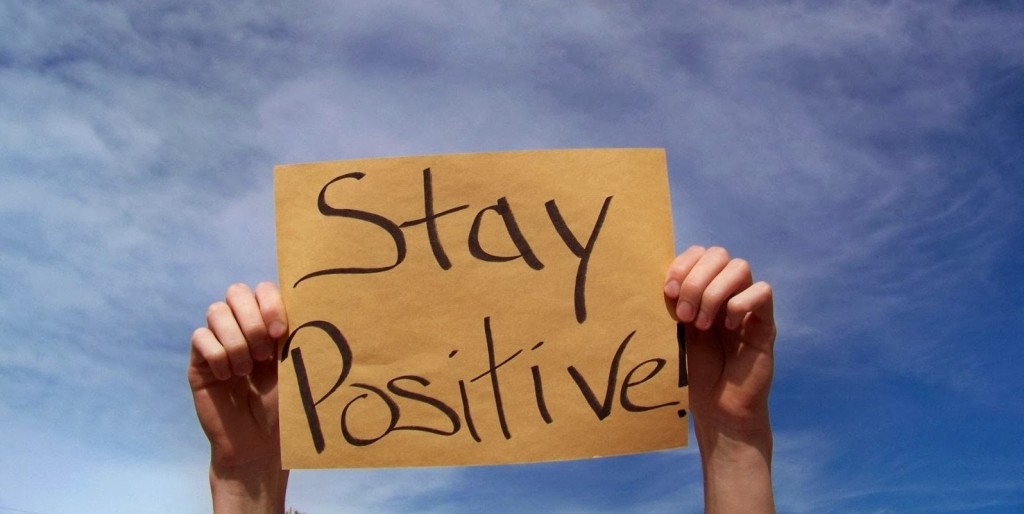Covid-19 has brought us to the bottom of Maslow's Hierarchy of Needs.

In the space of just a few days, many of you, your colleagues, family and friends' motivation has gone from the very top of this pyramid to the very bottom. We all find ourselves back at the most basic level of Maslow's Hierarchy of Needs, looking for security and certainty.
Many people are scared.
Maslow's Hierarchy of Needs
Maslow's Hierarchy of Needs is a theory in psychology proposed by Abraham Maslow in his 1943 paper "A Theory of Human Motivation". Although Maslow survived the Great Depression and both World Wars in his early year, he never experienced a global pandemic such as Covid-19 as an adult.

In brief, his theory goes that for an individual's motivation to rise to the next level, each stage must be satisfied within the person, themselves.
Our world has currently descended into the lower two levels - Physiological needs and Safety needs.
Physiological needs

These are the main physical requirements for human survival. His theory states that humans feel compelled to fulfil these physiological needs first, to pursue intrinsic satisfaction on a higher level.
Physiological needs include:
- Homeostasis
- Health
- Food
- Water
- Sleep
- Clothes
- Shelter
Safety needs

Once a person's physiological needs are relatively satisfied, then their safety needs take precedence and dominate behaviour. In the absence of economic safety – due to a financial crisis or this coronavirus and lack of work opportunities – these safety needs manifest themselves in ways such as a preference for security - personal, emotional, health and well-being. In this current climate, you may not feel that safety and security. You will seek to find safety before you attempt to meet any higher level of survival
Safety and Security needs include:
- Personal Security
- Emotional Security
- Financial Security
- Health and Well-being
- Protection from illness and its impact
Social belonging

After physiological and safety needs are fulfilled, the third level of human needs are seen to be interpersonal and involves feelings of belongingness.
Social Belonging needs include:
- Friendships
- Intimacy
- Family
According to Maslow, humans possess an affective need for a sense of belonging and acceptance among social groups.
Humans need to love and be loved. Many people become susceptible to loneliness, social anxiety, and clinical depression in the absence of this love or belonging element.
This need for belonging may overcome the physiological and security needs. I think we are seeing that at the moment, with so many Zoom and Whatsapp video calls and the odd breaches of the lockdown to meet up with friends.
You might not be able to find all the food you want, or have been furloughed by work, but so great is the desire for Social Belonging that you are prepared to compromise on the first two stages.
The optimism bias leads us to believe our odds of future survival and success are better than they are, making it easier to explain away a decision to keep an ill-advised coffee meeting or keep going to work when you could be working from home.
What would Maslow be telling us now?
According to Maslow's biographer Edward Hoffman, Maslow spoke unequivocally about the importance of dealing with life's uncertainties from a Growth Mindset. That is, regarding stressful or challenging situations as opportunities for growth rather than retreating into passivity or pessimism.

We must remain Positive and not let Negativity start to rule our lives in lockdown.
Maslow opined that in such a situation as we find ourselves in, people would find their inner strengths that they hardly knew existed.
Maslow believed that we were each unique in our individuality Our path to the top of his pyramid is also unique. But common to us all at every age—from infancy onward—is the need for Creative Self-Expression.
Creativity

Maslow believed that your innate creativity, which could have become suppressed during childhood, will still be there and could flower under the right circumstances.
Could this now be the time to be creative? Art, Music, Writing, Dance, Singing. Now is the time to wake those creative cells.
Maslow famously remarked that one can make a soup creatively. Such actions are not about training to be a professional, but rather to enjoy the creative process for its own sake.
Authenticity

Maslow wrote a lot about authenticity: the joy of discovering who you really are. Maslow never denigrated those who worked boring, unsatisfying jobs in order to support their family; indeed, he regarded such men and women as heroic—and urged his students to see them that way, too.
But he emphasized that the ideal society is one that creates opportunities for all its members to self-actualise.
So now is the time to be Authentic. What used to be your passion? With days and possibly weeks ahead of us in lockdown, now is the time to rediscover your true and authentic self and do what you are really passionate about. You have the time to self-explore and activate your curiosity.
In the psychology world there mounting evidence that highly curious people have better social and romantic relationships (probably because they're more interesting to be with), and may even enjoy better health with advancing age.
As Steven Spielberg commented, "The greatest quality that we can possess is curiosity, a genuine interest in the world around us".

Be ready to move back up the Hierarchy of Needs when the time comes. In the meantime, get creative.
It's going to be alright.
Further Reading
Growth Mindset Lessons: Every Child a Learner
The Right to be Human: A biography of Abraham Maslow
Future visions: The unpublished papers of Abraham Maslow
Positive Psychology: The Science of Happiness and Flourishing
365 Days of Art: A Creative Exercise for Every Day of the Year
 unknownx500
unknownx500






